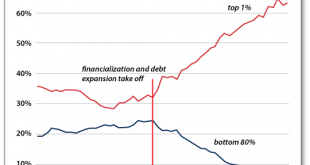As an entrepreneurial educator, I’ve read a lot about the different parts of the brain. It’s important to know how the mind works when you’re trying to fill up those of your followers with knowledge.
Boiling it all down to majorly simplified terms, we have three basic parts to our brain, pictured below:

The left brain: Generally, this part of the brain is used for reading, writing, speaking, and logic. Kids who do well in school have well-developed left brains.
The left brain would be most associated with linguistic, logical-mathematical, and interpersonal intelligences. Writer, scientist, lawyer, accountant, and schoolteacher are professions for these people.
The right brain: This part of the brain is often associated with pictures, art, music, and other more nonlinear relationships—with creativity and imagination.
Musical and spatial intelligences would be most associated with the right brain. Designer, architect, and musician are professions for people with these dominant intelligences.
The subconscious brain: This is the most powerful of the three brains because it includes the “old brain,” often called the primitive brain. It’s the primitive brain that is most like an animal’s brain. It does not think, but rather reacts, fights, flees, or freezes. The intrapersonal intelligence would most relate to the subconscious mind.
In my opinion, it is a person’s intrapersonal intelligence that ultimately determines if they are a success or failure in life, love, health, and money. This is because the subconscious mind is the most powerful part of the brain, especially in pressure situations.
Two of The World’s Biggest Giants Are Fighting
A feud has been going between Facebook’s Mark Zuckerberg and Apple’s Tim Cook sinpce 2014—believe it or not.
Cook said in an interview with Charlie Rose in 2014 that “when an online service is free, you’re not a customer. You’re the product.”
As we know from Facebook’s data breach earlier this year, Cook wasn’t wrong. Any of the six billion users on the social media’s platform was at risk for having their personal data shared, unknowingly.
In a lengthy blog post last week in a response to a New York Times report, Facebook had this to say about Cook:
Tim Cook has consistently criticized our business model and Mark has been equally clear he disagrees. So, there’s been no need to employ anyone else to do this for us. And we’ve long encouraged our employees and executives to use Android because it is the most popular operating system in the world.
This was in response to The Times’ implication that Zuckerberg had ordered his executives to stop using iPhones and use Android instead because he was personally upset with Cook.
It’s clear that both Zuckerberg and Cook are using their subconscious brain to continue, in my opinion, a petty battle between two geniuses.
How You Can Profit from Their Battle
The poor and middle class only know how to invest and make money in stocks when the stock prices are rising. But the rich make the most money when a stock is volatile. That’s because the rich know how to make money when the stocks go up AND go down.
The more and faster it happens, the more money there is to be made.
Stock investing has three features that make it unique: Scalability, liquidity, and agility.
Let’s focus on agility.
When most people think about profiting from movement in the stock market, they think of one direction of movement: up. They don’t understand the concept that stocks are agile. You can learn to profit from a stock no matter if it goes up, down, or sideways. That’s very tough to do in business, but in the stock market, it doesn’t matter—because there are profit strategies for movement in any direction.
You can make money if the stock market is moving upward. That is the strategy most amateurs use. They buy a stock and hope and pray that it grows in value, so they can sell it later.
You can also make money when the stock market is falling. The most common method is to short stocks. This method requires education. Most people cannot understand this strategy. The idea of MAKING money while the stock market is falling is very difficult to grasp. I don’t recommend this unless you are educated.
What is even harder to understand is how to make money when the stock is static or plateaued, but you can. Again, the strategies to utilize here require education, not luck. (This is the strategy I teach you and help you with in my Cash Flow Zone).
But the point is, you can make money in the stock market no matter what direction the stocks are moving and even if they are not moving at all.
The stock market is probably one of the easiest investing vehicles to earn a profit in relationship to the economy. When the stock market goes up you can buy stock, and when the stock market goes down you can short stocks. If you use the stock market and the options market in harmony with each other, there are many income strategies that can provide cash flow even when the stock market is stagnant or going down.
So, as the stocks are volatile, they go up and down a whole lot more than normal. Their agility is much more intense.
Now let’s discuss Scalability. One of the greatest qualities about investing in stocks is its scalability.
There is a common misconception that you need a lot of money before you can begin to invest.
Fortunately, investing in stocks allows almost anyone to begin their investing sooner rather than later.
Because buying stock is buying only a share of a company, buying stock is more affordable for the average person than buying an entire company or starting a business. But the beauty of this is that you can own exactly the same stocks as a famous investor like Warren Buffett.
The difference is that, as a new investor, you’ll probably buy a smaller number of shares than Buffett. A company you want to invest in may be a multi-billion-dollar enterprise, but you may be able to get a single share of its stock for just $25.
The cost effectiveness of stock allows you to scale up into your investing as you gain the means to go bigger. For the average person, this is a faster way to invest than saving up for decades to purchase a franchise or some other business.
Scalability permits almost anyone to quickly place an asset on his or her financial statement. In fact, acquiring an asset with stocks can be done faster than any other asset class.
I’ve already discussed volatility. Mark Zuckerberg and Tim Cook got in a spat in 2014 and it’s been going on until now. It’s been a public verbal match.
This made the Apple stock take a sudden plunge. Why? Because Facebook controls the media. They control the minds of the world. But when two giants go at it, people speculate as to what’s really going on and that creates the volatility.
How Emotional IQ Is More Powerful Than Your Academic IQ
A big part of being human is being human. And, being human means having emotions. We all feel fear, sadness, anger, love, hate, disappointment, joy, and more. What makes us each unique is how we respond to those emotions.
When it comes to risking money, we all experience fear, even the most successful of us. The difference is how each of us handles that fear. For many people, that emotion of fear generates the thought: “Play it safe. Don’t take risks.” For others the fear of losing money makes them think: “Play it smart. Learn to manage risk.”
Same emotions, different thought: different being—different doing—different having.
In my opinion, the greatest cause of financial struggle is the fear of losing money. It’s this fear that causes people to often operate too safely. If fear keeps you back from pursuing your dreams.
Rich dad explained the age-old puzzle of why people who do well in school do not always do well in the real world.
His answer was that your emotional IQ is more powerful than your academic IQ. That is why people who take risks, make mistakes, and recover often do better than people who learned not to make mistakes and are afraid to take a risk.
Too many people leave school with good academic marks, but no marks earned by taking a chance. They are not emotionally prepared to take risks, especially financial ones. Financial freedom comes when you finally feel free to make mistakes and manage risk.
After talking with rich dad, I came to realize that financial IQ is 90 percent emotional and 10 percent technical information about finance and money.
Rich dad, quoting 16th-century Erasmus of Rotterdam, uses the ratio of 24:1 in comparing the power of the emotional brain to the rational brain. In other words, when emotions are high, intelligence is low. I don’t know if the ratio is scientifically valid, but it is useful in terms of practical experience.
All of us have experienced events in our lives when our emotions overtook our rational thoughts. It often seems impossible to overcome our emotions and act rationally.
When it comes to money, our emotions often get the best of us. We know what we should do, but instead we do what we feel like doing—and that’s usually the safe route.
Part of becoming successful is recognizing patterns that hold you back, and taking action to overcome those patterns. When we are faced with fear of risk, we must be able to rationally recognize that fear before it becomes too strong to overcome. This requires self-knowledge that is the result of constant self-assessment.
If you can keep your emotions in check and go for what you know to be logical, you have a good chance of being successful. It’s a process of knowing which of your thoughts are emotion-based and which are logic-based. The most important conversation is always the one you have with yourself.
So, if YOU can have the emotional intelligence required to profit when two spoiled CEOs fight, then you can profit handsomely with just a little knowledge about the stock market.
All you have to do is hold on to your emotional intelligence and you can profit when others lose their emotional intelligence.
Regards,

Robert Kiyosaki
Editor, Rich Dad Poor Dad Daily
P.S. It takes a lot to surprise me these days.
Just when I thought I’d seen it all…
Jim Rickards comes in and shocks everyone. Including me.
I think you’ll be shocked too once you see what he found inside this CLASSIFIED government document.
You need to see this…
It’s about a controversial government project that could affect your retirement.
But they won’t let this stay public for long.
In fact, our publisher wants this pulled by midnight tomorrow.
Click here to see what Jim Rickards is “declassifying.”
Here’s to growing and protecting your wealth!
Source link
 Best Stock Hints Latest Tips To Buy & Invest Best Stocks Today
Best Stock Hints Latest Tips To Buy & Invest Best Stocks Today


